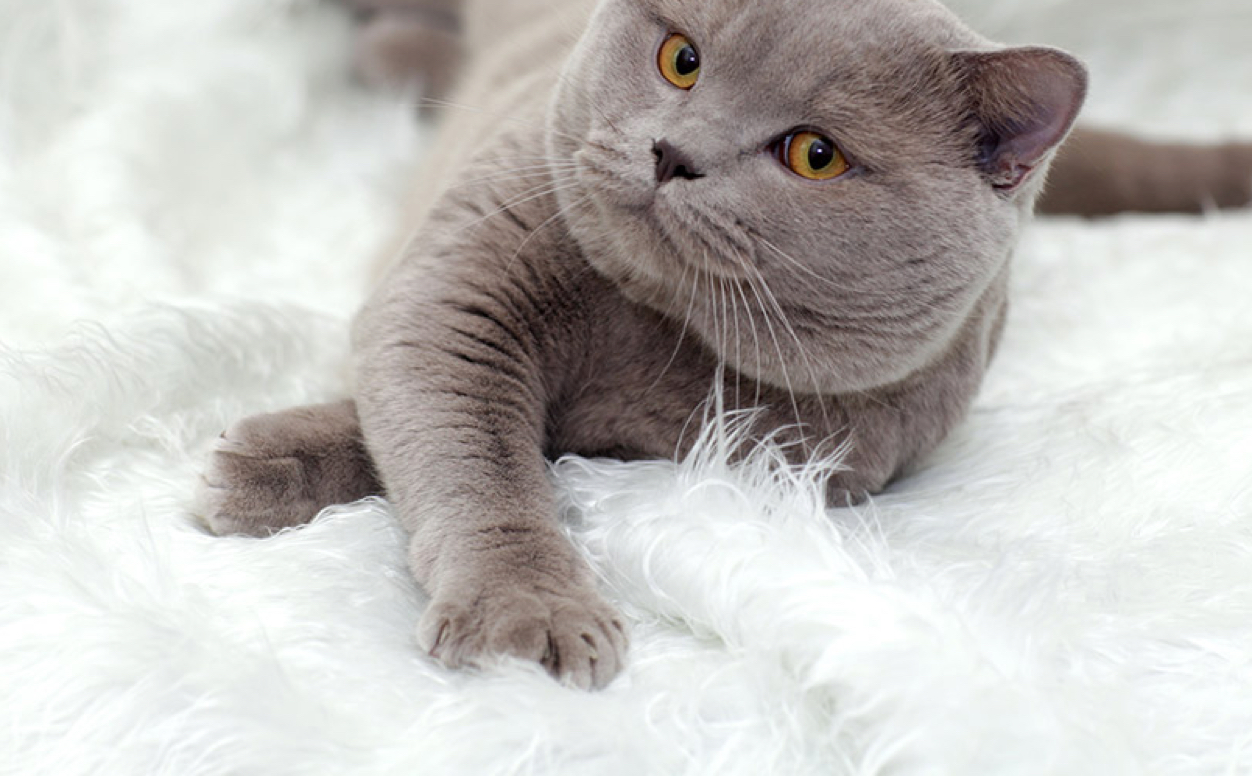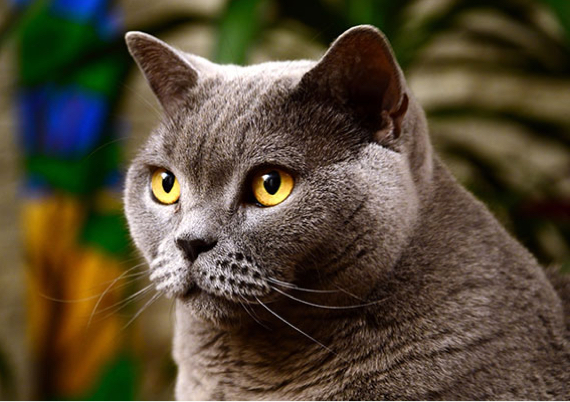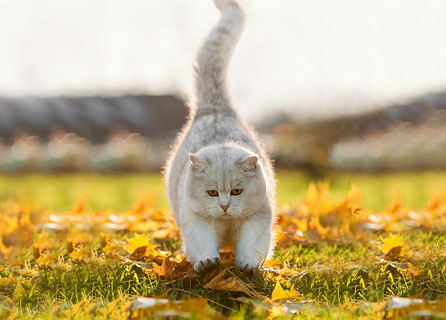
British Shorthair breed guide
Outgoing and intelligent, with teddy bear good looks. British Shorthairs are mild-mannered and known for their easy-going nature and soft coat. Learn more about this affectionate, adaptable cat, from their grooming and exercise needs to the things you can do to keep them happy and healthy.
Breed information and advice
One of the oldest and most popular breeds in the UK, the British Shorthair is easy to train and good with all the family. Calm, reserved and undemanding, this cat doesn’t really like to be carried around and their independent nature makes them well-suited to a busy household. Here's more you should know:
- While the British Shorthair is affectionate, they're pretty laidback and will prefer to sit beside you rather than on your lap.While the British Shorthair is affectionate, they're pretty laidback and will prefer to sit beside you rather than on your lap.
- You’ll need to groom them weekly to keep their beautiful, thick coat in good condition.You’ll need to groom them weekly to keep their beautiful, thick coat in good condition.
- They'll typically weigh between 4kg and 8kg, when fully grown.They'll typically weigh between 4kg and 8kg, when fully grown.
- A healthy British Shorthair will usually live for 15 to 20 years.A healthy British Shorthair will usually live for 15 to 20 years.
Typical size of a British Shorthair: Medium - Large

Recommended exercise and nutrition
Despite being a sturdy and muscular cat, it’s important that your British Shorthair still gets enough exercise and a well-controlled diet to help them stay healthy. They only have moderate energy levels, but will be more active as a kitten, settling down as they get older.
When it comes to exercise, encourage play and try to get them catching fishing-line toys. Not only will this be a fun way for the both of you to bond but you’ll also get them moving.
Feed your British Shorthair good quality cat food each day - read the packet for information on quantity, as this will vary depending on their age and size. However, as they're a more relaxed breed, take care to make sure they don't become overweight as this could cause health issues.
Alongside their food, make sure there is a bowl of drinking water readily available, and be aware that some cats are lactose intolerant, so cow’s milk may give them an upset stomach.
Loving and quiet companion
The British Shorthair is one of the quietest cat breeds, but responds well to play, so try to dedicate some time each day to keep your cat mentally and physically active.

Common health problems and illnesses
British Shorthairs are generally healthy cats but they’ll need regular check-ups and vaccinations to stay in good shape. There are some conditions that this breed may be more prone to, and it’s worth being aware of the main symptoms, so you know what to watch out for.
Cardiomyopathy relates to any disease that affects a cat’s heart muscle, and can affect this breed. Hypertrophic cardiomyopathy is one of the more common of these heart conditions and causes thickening of the heart’s muscles, making it more difficult for the organ to relax between contractions. Keep an eye out for any signs in your cat such as loss of appetite, weakness or difficulty breathing. Speak to your vet, who will be able to do a full examination and advise on treatment options, if you have any concerns.
More often seen in older cats, kidney disease has a variety of causes including infection, cancer and toxins. Kidney disease can be acute or chronic, but it’s important to keep an eye out for the signs as the kidneys are vital in helping the body to function. Look out for symptoms including vomiting, increased urination and thirst, weakness and bad breath. Depending on the extent of the condition, your vet will advise on treatment, but may recommend medication or changes to your cat’s diet.
Find out about insurance for your British Shorthair
Learn how pet insurance works and what kind of cover you might need for your cat.
Grooming advice
As their luxurious coat is short and smooth, you'll only need to brush your British Shorthair once a week to remove any loose or dead hairs. Be sure to wipe their eyes with a soft, damp cloth to get rid of any discharge. It’s also a good idea to use a different cloth for each eye as it helps to avoid passing any infections across.
It’s important to try to keep on top of their dental hygiene - brushing their teeth daily can help prevent periodontal disease. You may also need to trim their nails on a weekly basis to keep them from becoming overgrown and hurting the pads of their feet, and to help stop them from damaging your furniture. Introduce grooming to them as a kitten so he can get used to it and it can become part of his routine.
Fun and interesting facts
- One of the oldest cat breeds in the UK, the British Shorthair’s ancestry dates back to Ancient Rome.
- Blue is the favoured colour, with the ‘British Blue’ becoming a well-known name for the breed.
- The breed is one of the most popular in the UK.
- Famous in literature, the Cheshire Cat from Lewis Carroll’s Alice’s Adventures in Wonderland is based on the British Shorthair breed.
- Fairy tale character Puss in Boots, portrayed in DreamWorks’ animated film Shrek, with the voice of Antonio Banderas, is also based on a British Shorthair cat.
Important information
The content on this page aims to offer an informative introduction to pet breeds, but does not constitute expert veterinary advice. If your dog or cat falls ill or has an injury, contact your vet immediately.
All facts and figures were correct at date of publication and were compiled using a range of sources.
Discover more breeds
Browse our other cat and dog guides to learn about some of the UK’s most popular breeds.